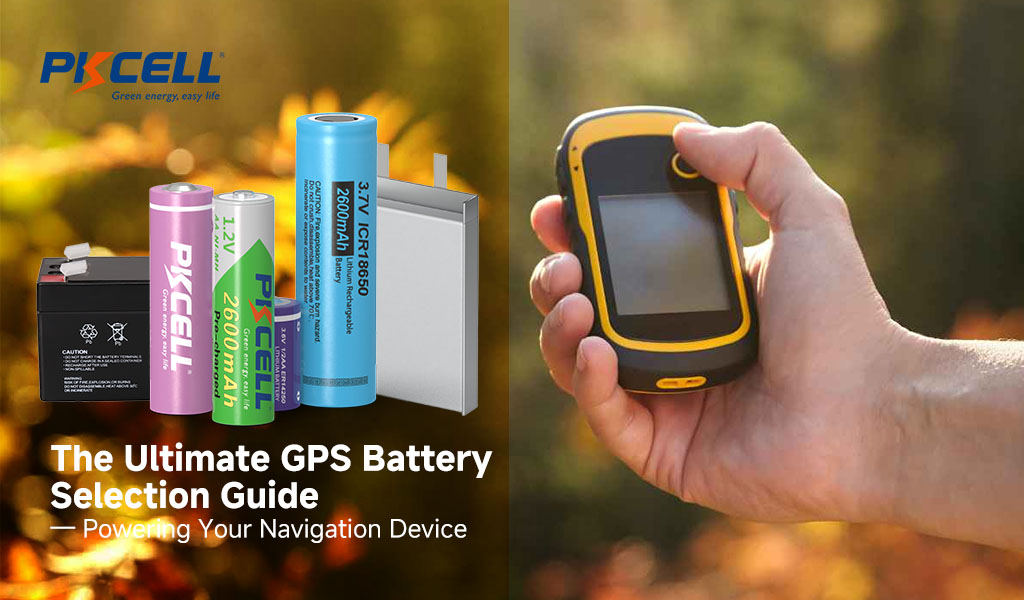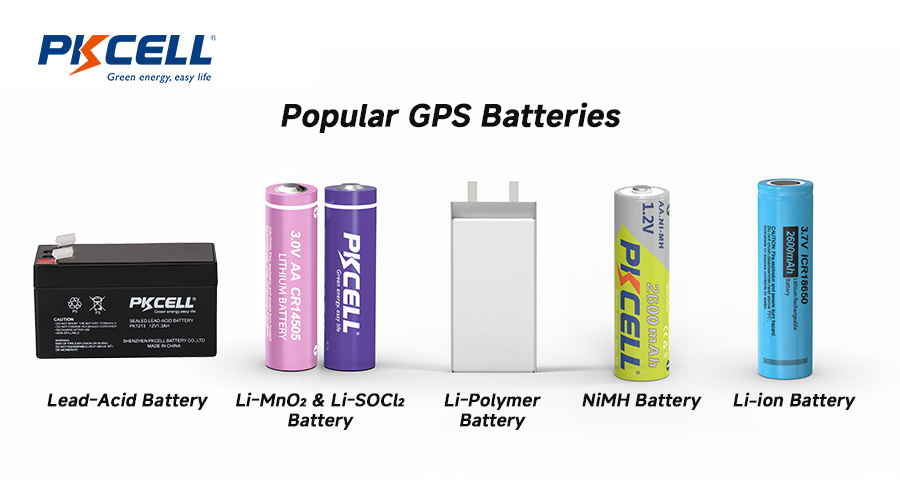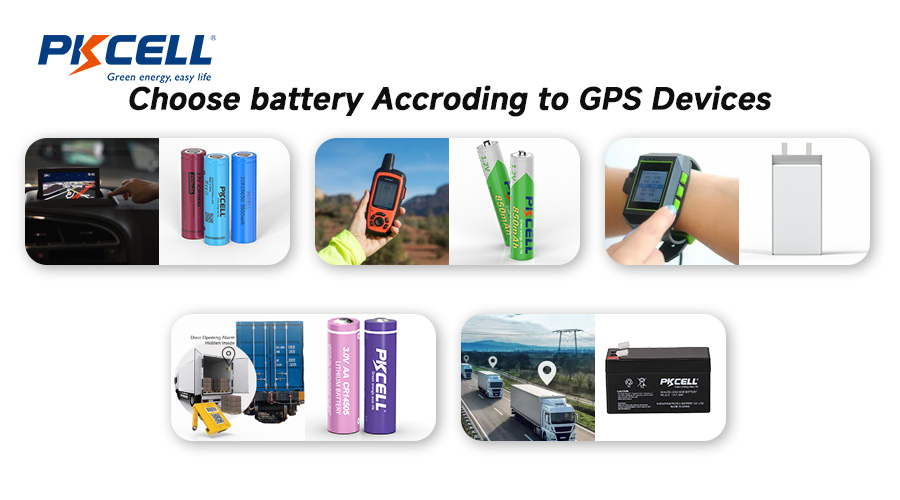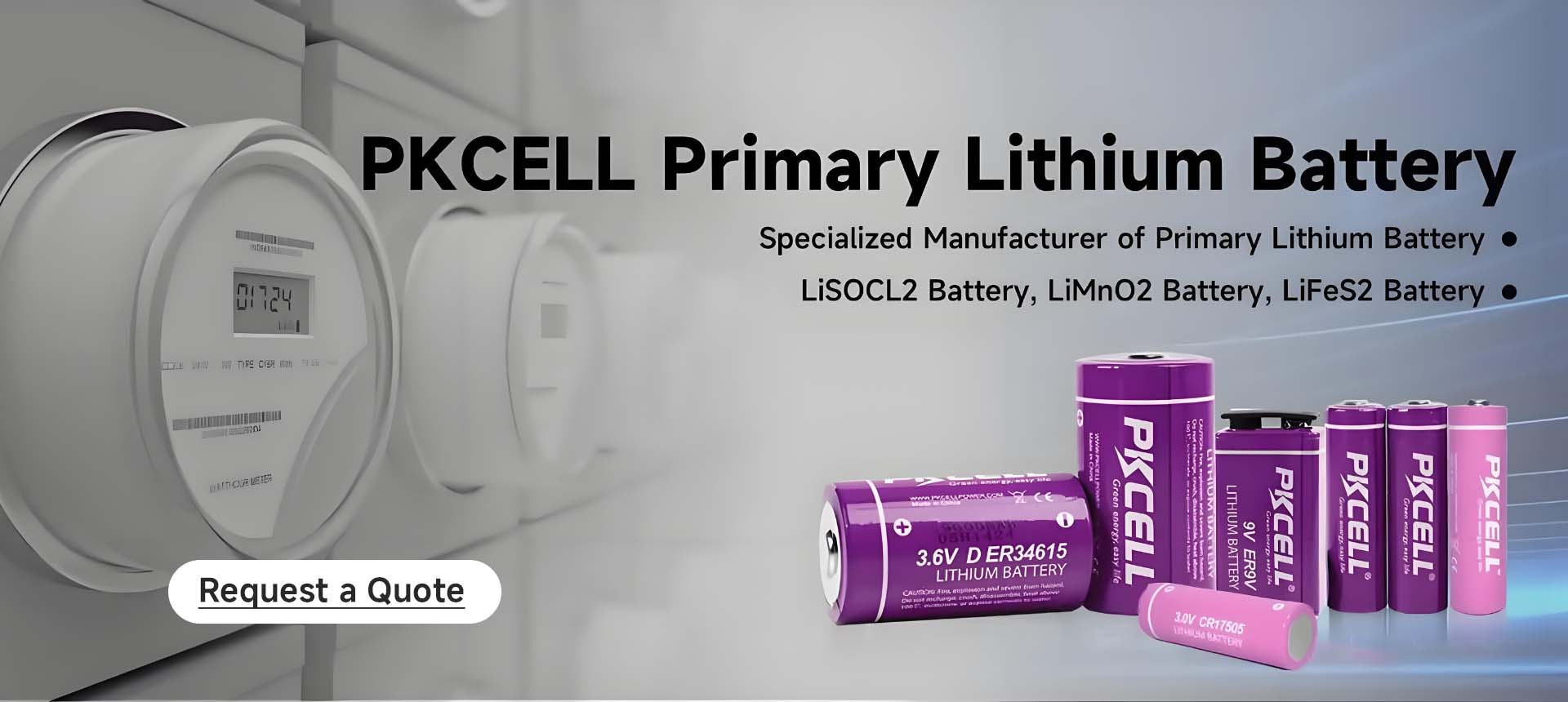Introduction
GPS is a device that we can’t live without nowadays. It brings us convenience. However, the device can only function well with a reliable battery. The type of battery required by different GPS devices is not the same. To maximize the performance of GPS devices, users need to choose the suitable battery, considering the operating environment, portability, and the required runtime (or duration).
Popular GPS Batteries and Their Characteristics
Li-ion Battery
Li-ion batteries are known for high energy density, light weight, no memory effect, and long cycle life, making them the most popular battery choice for consumer GPS devices. Rectangular Li-ion batteries are commonly used in car GPS navigators and small locators. Handheld GPS devices prefer removable cylindrical Li-ion batteries.
Li-Polymer Battery
Li-Polymer batteries feature a flexible form factor. The battery can be made ultra-thin or customized into a special shape. It also has higher safety, but its energy density is slightly lower than Li-ion batteries. The battery is commonly used in embedded in-vehicle navigation screens, small locators in pet tracking collars, and child-locating watches. The battery is also preferred by medical devices that have higher safety requirements, such as preventing leakage.
Primary Lithium Battery
Primary lithium batteries, like LiSoCl2 and LiMnO2, are non-rechargeable batteries, but they have a long battery life and can work continuously for many years. They can also work in a wide temperature range, making them suitable for outdoor GPS devices used in harsh environments. The CR2032 button cell battery is usually used for mini GPS trackers, and LiSoCl2 batteries, such as the ER14505, are suitable for low-power, long-standby GPS, such as asset trackers or animal trackers.
Quote For PKCell LiSoCl2 Battery
Quote For PKCell LiMnO2 Battery
NiMH Battery
NiMH batteries are ideal for outdoor GPS devices as they have high safety (no risk of explosion from overcharging) and good low-temperature performance. The battery has a slight memory effect and lower energy density, but they cost less than Lithium batteries. These batteries are often used in handheld GPS for professional geological exploration and mountaineering.
Lead Acid Battery
Lead-acid batteries have the advantages of high capacity and low cost. They’re also overcharge resistant. Nevertheless, the battery has low energy density, short cycle life, and contains heavy metals. Since the battery has low energy density, it is often used in fixed GPS devices, such as the GPS terminals of trucks and ships and outdoor base-station GPS receivers.
Choose Your Battery Based on the GPS Systems
| Application | Battery Choice |
| In-vehicle navigation device | Li-ion Battery |
| Outdoor handheld GPS | NiMH Battery |
| Personal tracking watch | Li-polymer battery |
| Logistics asset tracker | Primary Lithium Battery (LiSoCl2 & LiMnO2) |
| Lorry/truck tracking terminal | Lead-acid Battery |
Tips for Using GPS Batteries
1. Use a suitable charger for Li-ion and Li-polymer batteries and avoid overcharging.
2. For GPS devices used in low-temperature environments, it is advisable to choose NiMH or primary lithium batteries.
3. Low-power GPS devices usually use intermittent positioning to extend battery life, which should be considered when 4. choosing a proper battery.
5. Lead-acid and lithium batteries should be disposed of properly and must be recycled by professional facilities, as the batteries are considered hazardous waste.
If you still other questions or need help choosing the right battery for your GPS devices, feel free to contact us!
Post time: Oct-21-2025








